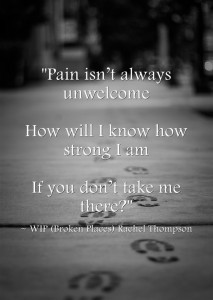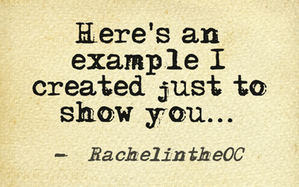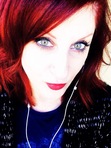Rachel Thompson's Blog, page 22
March 5, 2014
My Favorite Tools to Create Visual Content
You may have noticed that Pinterest and Instagram have gained more popularity. If you haven’t noticed, you need to! According to Social Media Today, photos on Facebook generate 53 percent more likes than the average post, (HubSpot survey).
I am the first to admit that I am NOT a graphic artist, but when I noticed authors sharing excerpts in a visual format, I wanted to know more. So I asked my followers (thank you social media) and here are the two options I ended up using:
1) QUOZIO
From their website:
What is Quozio? Quozio turns meaningful words into beautiful images in seconds. Then share ‘em on Facebook, Pinterest, email and more!
Quozio is pretty basic. You just type in a quote and it gives you a bunch of options for backgrounds. Here are a few I’ve created from both Broken Pieces and my WIP, Broken Places:
These are just two examples. If you’d like to see more, go to Pinterest and follow my Poetry board. Once you create your visuals, you have the option to share to pretty much every site: Twitter, Facebook, Google+, etc. It’s totally free and they keep all the picture quotes you create in an account for you which you can access at any time (I also recommend saving each one to your hard drive or cloud, just in case).
Once saved, it’s easy to upload to Instagram or any other site.
2) PINSTAMATIC
If you’re not using Pinterest yet, you should be! It’s easy and fun. I spend a few minutes each day creating and sharing pins, and it’s also a wonderful search engine — someone, somewhere, has pinned something you are looking for.
Pinstamatic is designed to allow you to create similar pins above, but with more options (share a Twitter profile, FB, a photo, create a photo with a meme, etc). Click on the toolbar at the top to see all the options. I use the second from the left, the quotations marks, to create well, a quote. Here’s an example:
I hope these options are helpful for you. I know their are lots of other applications, but these are the ones I personally use and find to be the most user-friendly. It’s an easy and effective way to share your work without being super ‘hard sell BUY MY BOOK!’ pushy.
Please share your thoughts and experiences below!
Want to join my street team The BadRedheads? Read more here and we can add you!
Related articles across the web
 14 Tools to Create Engaging Infographics and Images for Social Media Posts
14 Tools to Create Engaging Infographics and Images for Social Media Posts Online Marketing Trends Are Moving Toward Visual Assets
Online Marketing Trends Are Moving Toward Visual Assets Poetry, a Popular Quote, and Five Stars for Quozio.com
Poetry, a Popular Quote, and Five Stars for Quozio.com 5+ Tools to Create Cool Visual Content
5+ Tools to Create Cool Visual Content
February 16, 2014
Read This Before You SELL SELL SELL Books On Twitter

FreeDigitalPhotos.net
This title is a bit misleading, because I don’t feel authors should be using our streams to SELL SELL SELL. I am an author. I tweet a lot, mostly about topics that are of interest to me (Nutella, relationships, love, loss, sexual abuse, music, books, social media). I tweet my own books (well, mostly just Broken Pieces, my latest release, once in awhile my first two humor books) MAYBE a few times per week. Mostly, I refer folks to my bio where there’s a direct purchase link.
Lots of authors tweet nothing but links to their books. This is a mistake — it’s off-putting and annoying. Below, examples:
‘Here’s my latest book: It’s All About Me. Please buy, review, tell everyone you know!’ NO. #unfollow
I tweet a lot of music — what I enjoy, lines from songs (always with attribution). I got this yesterday: ‘If you love David Poe, you’ll LOVE my new single. Click here to view and share with your network!’ NO. #unfollow
Let’s deconstruct.
SELF-PROMOTION
When you first started on Twitter (for the sake of this discussion, I’ll use Twitter, but the principles apply to any social media network), you were probably a puppy: ‘woot! all these millions of people will now know about my amazing book! Tweet links, tweet links, tweet links!’ The mistake is: nobody cares. Nobody knows who we are.
We are raised to think we’re special, wonderful, unique beings. Unfortunately (or actually, fortunately in this case), social media isn’t ‘All About Me’ media, it’s ‘Social’ media. I’m not sure why some authors get this and some don’t. To be fair, authors aren’t the only ones constantly hawking their own work — I see musicians, artists, and many charities and businesses also doing the ME ME ME thing. To me, this just reeks of newbie-ness, of inexperience, and even desperation. And really, is that how you want to be perceived?
So, what to do? Gawk: watch what others do, figure out the lingo (Twitter’s HELP section is quite complete and there are millions of articles about how to use it on the net), learn. Focus on being your authentic, true self, not being an automaton spewing out book links.
THE BIG SECRET
I’ve been on Twitter since 2009, and I’ve learned a lot about human behavior just observing interactions there. What I’ve found: the authors who make a real effort to connect with readers, bloggers, and reviewers (more below) sell far more books by NOT selling, but by talking with people and sharing great content.
What a concept: talking, connecting, interacting!
To be clear, I’m not opposed to all self-promotion. We all have rent to pay. I share links occasionally to my books. I’m opposed to constant, unrelenting, hard-selling self-promotion, particularly when accompanied by defensiveness and attitude. At this point, I will simply unfollow you.
UNFOLLOW
Many authors start on Twitter (or FB, etc.) and follow other authors. That’s fine and all (we are, for the most part, supportive), but the authors who go into Twitter expecting something from their fellow authors will be sorely disappointed — most of us are so swamped with our own work, it’s all we can do to interact (‘make a friend, make a sale’), let alone read your books, review them, and promote them for you. That’s not OUR job, to be blunt.
Your job is to find ways to promote your work that are not obnoxious. I recommend relationship-building, advertising, promotional book groups (where you support authors and they support you on specific events — Facebook, G+, and LinkedIn have the most groups, I’ve found), blogging (participate in #MondayBlogs — share ANY post, retweet others. On Mondays.), guest blogging, interviews. None of this falls in your lap like a bucket of love from the sky — you have to find your opportunities.
This disconnect — this wanting others to do our work for us — this is where authors hit trouble. That and expecting others (anyone! everyone!) to turn our stream, which we’ve worked for years to cultivate, into their own personal commercial. It reminds me of drafting in cycling.
I’ve heard it all — rationalizations about how you don’t have enough time (pft. Use Hootsuite to schedule across your platform, interact live when you have time), that you have no money (pft, doesn’t cost anything to ask someone how they’re doing), or retweet (RT), follow, or list someone.
THE THING
Here’s the thing: Twitter (or any channel) will not sell books for you. What it does do is increase your visibility, and if done correctly, creates a reader base for when you need beta readers, or want to create a street team, when your book does come out, when you have a promotion, or some major accomplishment that you want to share. I’ve found readers, bloggers, and reviewers (whom I go out of my way to follow) are open to helping me because I’m not constantly barraging them with random requests — particularly when we interact the very first time.
Remember, this isn’t a sprint. You have time to build your base and connect with influencers. And by connect, I do not mean annoy the hell out of them.
WHAT TO DO
Share snippets of your work (a quote here and there), pictures, videos, blog posts (yours and others), news. Chat, be yourself. Don’t talk about your book constantly (or your lunch — that’s so over). You have an avatar, bio, header and a background on Twitter — four places where you can take full advantage, using links there. IF you have a promotion, politely ask your followers and author friends to share a tweet. Even tweet it yourself once or twice, max.
Bothering people to buy your books doesn’t work. If you think it does, fine. I will not be following you or helping you promote your work. I’m all about helping other authors — if you ask me nicely and send me Nutella (kidding!), I may RT you. If you ask me to read and review your book, I won’t. Not because I’m being a bitch, but because you need to be connecting with bloggers and reviewers who are FAR more influential than I. Plus, I have to be conscious of how many book tweets go out on my stream, how much promotion I’m willing to share. As should you.
How do you use social media as part of your author platform? I’d love your thoughts and suggestions!
P.S. Broken Pieces is on sale for two days only — $3.99 (reg. price $5.99) for the eBook — no Kindle required (free reading apps). Want to join my street team The BadRedheads? ? Here’s the form. Want to sign up for my newsletter? Click over there >>>>>>.
Related articles across the web
 Definitions for 34 Twitter Terms You Were Too Embarrassed to Ask About
Definitions for 34 Twitter Terms You Were Too Embarrassed to Ask About 25 Twitter Tips To Go From 25 To 25,000 Followers
25 Twitter Tips To Go From 25 To 25,000 Followers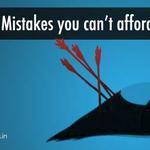 7 Twitter Mistakes You Can’t Afford To Make In 2014
7 Twitter Mistakes You Can’t Afford To Make In 2014 How to Use Twitter’s New Analytics Dashboard
How to Use Twitter’s New Analytics Dashboard Twitter Strategies for the B2B Marketer
Twitter Strategies for the B2B Marketer
February 9, 2014
Why I Donate Blood by @K8Tilton
Today on the blog please welcome back my fabulous author assistant Kate Tilton! Kate has been on the blog before with her article, The Balancing Act of Author Street Teams when we launched my street team The Bad Redheads. If you didn’t sign up then you can still join now!
_____________
This topic is very close to my heart. From a rather young age I had wanted to donate blood, and finally when I was seventeen I was eligible to donate. I went through the screening process, made my donation, and headed back to class for the rest of the day. At that time I didn’t realize just how much of a difference that one donation could make. Now I know.
One donation could save up to three lives. My sister was one of those lives.
Years ago when my sister was younger, she went through a surgery procedure. She was sent home and was supposed to be fine — but she wasn’t. After experiencing much pain, my sister was brought back to the hospital. One of the things they gave her was blood.
Now I do not remember all the details of that week. I can’t tell you what went wrong or why my little sister needed blood. But she needed blood. Without the donations of complete strangers my sister might not have gotten the blood that she needed.
This is why I donate. For all of the sisters, brothers, mothers, fathers, husbands, and wives. To save a life if I can so no family has to worry about their loved one making it through without a blood transfusion because the blood bank ran out. For all those times when crisis comes and more are injured then then could ever be anticipated.
Donating blood regularly is important, here are a few factors to consider:
Blood has a shelf life. If blood is not used in a certain amount of time it expires.
Few people are eligible blood donors and even fewer actually donate. There are age and weight requirements, certain lifestyles that are at a higher risk for AIDS are not allowed to donate, and other factors can prevent people from being eligible.
Even recently I went to donate and was turned down because my iron was too low. This has NEVER been a problem before. It just goes to show you how important it is to donate when and if you can!
Many people do not understand how important this issue is. In other words, this isn’t something we see the news talking about regularly or that comes up in our day to day lives.
There are different blood types. Without the proper blood type available, a patient will not be able to be treated.
For more information about blood donation (and blood types) check out the American Red Cross’s website.
About Kate Tilton:
 Kate Tilton has been in love with books for as long as she can remember. Kate believes books saved her life and strives to repay authors for bringing books into the world by serving as a dependable author assistant. A cat-lover and fan of many geeky things, Kate can likely be found curled up with the latest Doctor Who episode, plotting world takeover, or assisting authors and readers in any way she can. Kate is also a self-proclaimed Twitter addict. You will find her hosting #K8chat, her own creation, every Thursday night on Twitter from 9-10pm Eastern.
Kate Tilton has been in love with books for as long as she can remember. Kate believes books saved her life and strives to repay authors for bringing books into the world by serving as a dependable author assistant. A cat-lover and fan of many geeky things, Kate can likely be found curled up with the latest Doctor Who episode, plotting world takeover, or assisting authors and readers in any way she can. Kate is also a self-proclaimed Twitter addict. You will find her hosting #K8chat, her own creation, every Thursday night on Twitter from 9-10pm Eastern.
Website | Twitter | Facebook | Google+ | LinkedIn | Pinterest
“My goal for the longest time has been to help authors. Make their life better because they make my life better. You are my rockstars.”
Related articles across the web
 4 Easy Tips to Grow Your Twitter Following by guest @K8Tilton
4 Easy Tips to Grow Your Twitter Following by guest @K8Tilton The Balancing Act of Author Street Teams by guest @K8Tilton
The Balancing Act of Author Street Teams by guest @K8Tilton Wish you had a few extra hours in the day? Hire an author assistant! by guest @K8Tilton
Wish you had a few extra hours in the day? Hire an author assistant! by guest @K8Tilton E-books for Troops: Donate to Win It
E-books for Troops: Donate to Win It Blood donations needed after storms cancel blood drives
Blood donations needed after storms cancel blood drives Red Cross has urgent need for blood, platelet donations
Red Cross has urgent need for blood, platelet donations Community Blood Services in Bergen County in urgent need of donors
Community Blood Services in Bergen County in urgent need of donors Red Cross calls for donations after winter weather causes shortage
Red Cross calls for donations after winter weather causes shortage Precious Cargo
Precious Cargo 4 Easy Tips to Grow Your Twitter Following
4 Easy Tips to Grow Your Twitter Following
January 29, 2014
Andrew, A Story About Cinema Therapy by @DrewChial

Image courtesy of Salvatore Vuono | FreeDigitalPhotos.net
Andrew
A Story About Cinema Therapy
By Drew Chial
From ages two to six, I spent my waking hours at a living room daycare center. My playmates were the caregiver’s three sons. Their principal forms of recreation were hurling rocks through windows, leaving milk jugs in the street, and beating the living snot out of me.
It was their home, their shield generator facility, and I was the rebel scum who’d broken into it. They had to make an example. Their mother turned a blind eye and a deaf ear to my side of the story. She had stories of her own to watch.
Her boys kept the den locked down, the only window of escape was through the TV. While they amputated action figures, I fled to a galaxy far far away. Watching Star Wars on an endless loop, something happened to me. Turning away from the screen, hyperdrive lines streaked through my vision. Out the window, I watched Tie Fighters chase robins. Looking at the night sky, I saw the moon was no moon.
I ceased to see Mark Hamill on screen. I saw myself. I had slipped into Luke Skywalker’s Velcro boots. I was mourning Uncle Owen and Aunt Beru. I wanted to go back to save Obi Wan. When my caregiver switched the TV off, I saw the world differently.
These boys weren’t my peers, they were storm troopers marching across my finger paintings, clones programmed to sit on my face. Seduced by the dark side of the force, they dragged me through the backyard, and pushed me into the Sarlacc pit. When I limped inside, Nanny Vader yelled at me for tracking mud across her carpet. She dragged me to the detention block by my ear.
This wasn’t a day care, it was a Death Star. I wasn’t clogging a laundry shoot full of toys, I was launching proton torpedoes into a thermal exhaust port. I wasn’t waving a tampon at my captors, I was slicing bad guys with a light saber.
When Nanny Vader told me to eat my peas, the ghost of Obi Wan Kenobi appeared beside her.
He waved his robes, “Don’t touch them, they’re rife with the dark side. Fling them under the refrigerator for the swamp monster.”
***
Slouching in the stiff vinyl chair, I regarded my reflection in the heart rate monitor, a force ghost haloed in florescent light. My cheeks were inflamed. My eyes were red slits. Patients with real problems, moaned in 5.1 THX surround sound. Sitting in silence, the dark side wafted over me, looking for an opening. I pulled the curtain along the track, a forcefield to shield my dignity from prying eyes.
Pus seeped out of my fist.
The hooks creaked along the track. Someone pulled the curtain out of my reach. She wasn’t dressed for this end of the hospital. The nurses wore scrubs, she wore a shawl with a turtleneck sweater. Her clipboard was bursting with notes.
Sitting across from me, she tried to make eye contact. “Andrew?”
I wasn’t sure who she was talking to.
She raised her spectecles. “Oh, it says you prefer ‘Drew.’”
I met her gaze. “Andrew is my given name. Drew is a character I play in real life.”
She inhaled, “O-” she exhaled “-kay. I’m here to decide whether or not you need to be admitted. Do you mind if I ask you a few questions?”
I shake my head.
“Let’s start with, why are you here?”
I nodded to the stack of chicken scratch she’d inherited from her predecessors. “I was referred here by Robin Williams. He told me it wasn’t my fault.”
She tapped her notes. “Your therapist said you were in immediate danger.” She raised her chin to my shaking fist. “What happened to your hand?”
I opened it to reveal an ashtray where my palm had been. “Not what, who.”
The therapist scanned her clipboard. “Who, your girlfriend?”
“She wasn’t my girlfriend.” I searched for my line somewhere on the set, “She was everyone’s girlfriend. She was no one’s girlfriend.”
“Just tell me what happened?”
“It was last night, after the ball dropped. I was beached whale drunk by the time she found me. She stumbled into the bedroom with this maniacal grin, standing over the bed like Kathy Bates in Misery. We argued. She tried to convince me that I hadn’t seen what I thought I saw. She told a story about an abusive boyfriend, like it excused her actions. She asked me to hit her. She said, ‘if you loved me, you’d hit me.’”
I sighed for dramatic effect.
“I wouldn’t, so she locked herself in the bathroom, like Robin Wright in She’s So Lovely. I broke the lock to find her with a leg razor, and an arm full of shallow cuts. She presented them, like Audrey Hepburn modeling bracelets.
Her explanation was, ‘This is me feeling.’
I didn’t know what to say, but I wanted to be part of the conversation. So I put a cigarette out in my palm, like Winona Ryder in Heathers.”
The therapist scrawled my plot points down. “Can you tell me the rest of the story without all the movie references mixed in?”
Looking away, I saw sprocket holes out of the corner of my eye. Reality was coming off the film reel.
I shook my head. “I can’t.”
The therapist squint, trying to read a subtitle beneath my face. She deferred to the clipboard. “Can you think of something you might have to look forward to, something you have to live for?
I counted to one on my hand. “The next X-Files movie.”
She tilt her head. “That’s not much.”
I shrugged. “The series ended on a cliffhanger. I might want to stick around for closure.”
“And after that?”
“Depends if there’s anything good on.”
Watching the lights flicker, I expected the film to burn through, revealing the big white nothing behind it.
The therapist folded her spectacles. “I recommend we hold you for a 72 hour observation.”
This was how my 2004 began.
***
In the second grade, I got detention for fighting. I spent the hour staring daggers at the duo who’d landed me there. My arch enemies.
The boys in my class chased the girls around the playground. The game was called Kiss or Kill. When a boy cornered a girl, he’d proclaim the title, and the rules became self-explanatory. I didn’t play by these rules. I was too busy playing a game called Batman. I’d fashioned blue dorsal fin gauntlets, and ears out of construction paper.
I stood on top of the tire swing, waiting to tackle one of the killers. I stalked them in the shadows beneath the playground equipment, hanging on the underside of the log bridge, peering through the tic tac toe board.
I wasn’t much of a fighter, but I was a hell of an intervener, putting myself between the killers and their victims. Then two older boys put a stop to all that, pummeling me into the pavement.
That year my birthday party was attended exclusively by relatives. My peers weren’t my peers. Gonzo from the Muppet Babies was my peer. We both came from “The Weirdo Zone.”
My mother didn’t know what to do. I was a daydreamer refusing to be woken up by Ritalin. Media was my medication. Film was my pharmacy. Drama was my drugstore.
My father had a modest VHS library, but I clogged that VCR with tape. Re-watching became ritual. Memorizing became mandatory. If I was to become my heroes, I needed their words to be a part of me.
I came to school armed with catchphrases. Punchlines waiting for someone to set them up. I had a mad lib monologue for every situation. I had a collection of nicknames to brand people with. You weren’t matching wits with me, you were up against the whole of cinema history.
Michael J. Fox spoke through me, Harrison Ford spoke through me, Bill Murray spoke through me. Bill and Ted’s surfer accent took on Wayne and Garth’s one-liners. Terminator 2 armed me with an arsenal of swear words. John Connor had me calling everyone a “Dip shit.”
As far as my fourth grade teacher was concerned, I was Bart Simpson. I looked like him, and I could quote him on command.
If anyone stole material from me, they’d stolen twice (and in the case of that line, they’d stolen three times).
I’d paused movies to give my imagination time to walk around the scenes. Through the screen was a world where bullies never triumphed, where Marty McFly was always one step ahead of Biff Tannen, where John Cusack could win a downhill race with one ski on. Over the Technicolor rainbow, was a world where nerds became popular, where the vain were humbled, and the lonely found love.
***
The mental health facility was not what I expected. There were no men in white coats, no bars on the windows, and no padding on the walls. No one fit me for a straightjacket, a helmet, or the straps for a mattress. They did take my belt, my wallet chain, and my shoelaces.
The phones had locks. The staff sat outside the showers. The rooms were baby proofed. There were no sharp objects. The pens were felt tipped. The silverware was made of plastic.
Passing by the rooms, I expected to see Linda Hamilton doing pull-ups, Brad Pitt jumping on the bed with Bruce Willis raving about the future. There were no bathrobe ghosts, no big chiefs standing in silence. None of the patients bashed their heads against the radiators. No one had drool down their chins.
Some of the patients sat with their heads in their hands. Some stared out the windows at nothing in particular. Some grinned as I walked by, with smiles that didn’t sync up with their eyes.
I could have sought out a therapist. I could have asked for something to help me sleep, but when I saw the entertainment center, I knew where I was heading. The old tube television had a not so subtle hum. There was a tiny VHS library. The titles were frayed at the edges. The pickings were slim, but there was enough to get my fix.
I turned to address the patient holding the remote, “What’s next?”
He nodded to me. “Rain Man.”
I plopped down on the couch, “Alright, I’m in.”
***
High school was an education in humiliation. Bullies were even more brazen. My growth spurt was not a deterrent. It made me a bigger target. I was blindsided, pushed into lockers, and walled into fights by onlookers.
When I wasn’t ducking dick heads, I was putting my energy into getting girls to notice me. Dances came and went. I was passed over for guys in their twenties.
I didn’t like what I saw in the mirror, so I looked for myself in the TV.
I needed a protagonist cocktail to wash the taste of failure from my mouth. One part messiah complex, one part wish fulfillment, one part male power fantasy, shaken, not stirred. I needed a self image stand-in to carry me across the depression spectrum. A proxy for my pride, a surrogate for my self-confidence, a delegate for my dignity.
When life gave me kernels of harsh truth, I made popcorn. With my PJs on, I strapped myself in for a me-marathon, a refreshing festival, a revitalizing viewing session.
Being myself wasn’t working, I was a typecast loser. I wasn’t good at saving face, so I put a mask on. While others saw stars on screen, I saw avatars, shadows worth following, role models to mold myself after. I became a different person with each viewing.
I spent my freshman year in black, dressed as Brandon Lee from The Crow (sans the makeup). My trench coat had a way of getting stuck under desks. Long white streaks ran down its tails.
One day, I mixed it up, showing up to school with a haircut and a suit and tie.
A Goth friend put his hand on my shoulder. “Dude, you’re not David Duchovny.”
There was no X-File here, no real mystery. I was a sad little Mulder just looking for a Scully.
My sophomore year, I shaved my head to look like Ewan McGregor in Trainspotting. One skinhead joke later, and it was hoodie season the rest of the year.
My junior year, I grew a goatee so I could be as smooth as Ethan Hawke, sitting in a diner, misdefining “irony.” I still have those Reality Bites Troy Dyer-isms, clunking around in my vocabulary. Every time a friend leaves the bar I fight the urge to say, “You know the punishment for premature evacuation?” I have no idea what it is, but I still feel compelled to pose the question.
My senior year, Brad Pitt’s Tyler Durden, had me shopping for fake fur, floral shirts, and bug-eyed sunglasses.
Even now, I can’t bring myself to close a browser window with a cosplay copy of Benedict Cumberbatch’s Sherlock Holmes coat. It’s $180. I’m skeptical if it could handle a Minnesota winter, but to a person like me, it’s not a costume, it’s a security blanket.
***
The next morning in the mental health facility, they gave me a questionnaire. The first question: HOW ARE YOU FEELING?
I wrote, “Like Jack Nicholson.”
During breakfast, the orderlies came around with sippy-cup pill samplers. I traded mine for another helping of hash browns. Cinema was my Celexa. Motion pictures were my Paxil. The home theater was my Thorazine.
In group therapy, I expected to pass cigarettes to Winona Ryder and Angelina Jolie. None of the characters stood out. There were no breakout stars. We kept our guard up. We didn’t know how to put our situations into words. We weren’t given good direction. We weren’t qualified to give advice, but they had us improvise anyway.
My memory didn’t record much. I was too busy daydreaming, imagining Lily Tomlin and Dustin Hoffman bursting in to help me through an existential crisis. I saw the mob motivating Billy Crystal to analyze me. I saw Whoopi Goldberg throwing me into a bathtub, and telling me to get myself out.
There were no good roles among the staff, nothing for an audience to connect with. No touching heart to hearts, no tear jerking revelations, no show stealing performances. The story lacked a titular hero to teach my downtrodden underdog how to believe again. The therapists were underwritten. I can’t remember one of them.
Patients got up in the middle of conversations, something else had their attention. Every chair was a hot seat, under a gun, between a rock and a hard place. We couldn’t stay in one spot too long, lest our thoughts caught up with us. We were sharks, afraid to stop moving. Social butterflies, afraid to land. Pacing the room, we tried to wear our thoughts down.
The TV helped us zone out, but it couldn’t numb us completely. If we were going to achieve cinema therapy, we’d need a broader selection.
Wandering through the multiplex of memory, I popped into one theater, tried to followed the plot, and found myself stumbling into another. I had High Fidelity for romantic rejection, The Shawshank Redemption for severe depression, and Insomnia for, well, it’s in the name.
Given the circumstances, I couldn’t see myself in any of those narratives. I couldn’t find the right protagonist to get me through this. I was afraid I was it. This was the part I was born to play. I was trapped inside a coming of age picture.
Retirees brought their dogs for us to pet. With their wagging tails and big bright eyes, they had no idea what we were. The dogs circled our ankles, and lapped at our fingers. Research has shown, general audiences find heroes more likable when they pet a dog. Scratching a collie’s chin, I hoped some of that likability would rub off on me.
The staff tested our calm by having us play boardgames. They wanted to see which patients could make it to the end. The others adjusted their seats, and twisted their pieces. They didn’t roll the dice so much as drop them. Their eyes were anywhere but on the board. The more games of Clue I won, the more apparent it became that I didn’t belong.
When the door slammed, I sat at the head of an empty table.
I sighed. “Then there were two.”
The therapist looked me over. Checking my arms for telltale stitches, he ignored the bandaid in my hand. “How did you end up in here?”
Lacking a quote for the occasion, I shrugged, “This is me feeling.”
On the way back to the room, I saw trails of red, yellow, and blue. There were color bars in every reflection. Static ants marched across the walls, leaving noise in their wake. There were tracking lines in the air, zig zag patterns cutting through the orderlies. The patients’ hair tilted with the distortion. Their heads wobbled off their necks, until their faces multiplied.
I’d crossed over to the world behind the screen.
In my room, cigarette burns hung in the air, like Get Well Balloons. The lights flickered, as the frame rate dropped.
From my pillow, I watched film scratches streak down the ceiling tiles. There were no previews to pad my viewing experience, just a countdown. Tonight the classics would stay in their vault, there would be no double feature to lull me to sleep. This would be a premiere. Tonight my own thoughts were going up on screen.
With my feet dangling over the edge of the bed, I waited for the credits to roll. Closing my eyes, I watched for film grains, and cried in silver.
About the Author:
 Drew Chial is an author, screenwriter, graphic artist, aspiring voice actor, and a musician living in Minneapolis, Minnesota. He writes short stories that he bills as Twilight Zone fan fiction. His self-published horror novella Terms and Conditions is available for free on his website as an e-reader file and an audiobook.
Drew Chial is an author, screenwriter, graphic artist, aspiring voice actor, and a musician living in Minneapolis, Minnesota. He writes short stories that he bills as Twilight Zone fan fiction. His self-published horror novella Terms and Conditions is available for free on his website as an e-reader file and an audiobook.
Connect with Drew on his website, Twitter, or Facebook.
Related articles across the web
 Mark Hamill’s AMA asks the tough questions – what would Luke look like with a beard?
Mark Hamill’s AMA asks the tough questions – what would Luke look like with a beard? The Adventures of Obi-Wan Kenobi (part 3)
The Adventures of Obi-Wan Kenobi (part 3) STAR WARS: EPISODE VII – Story Details and More Casting Rumors
STAR WARS: EPISODE VII – Story Details and More Casting Rumors Truth isn’t Stranger than Fiction: It is Fiction.
Truth isn’t Stranger than Fiction: It is Fiction. The Evolution of Obi-Wan Kenobi
The Evolution of Obi-Wan Kenobi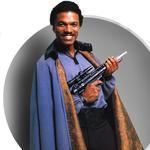 Fate Accelerated: Star Wars
Fate Accelerated: Star Wars Star Wars Ep. VII Rumor – Obi-Wan Has a Daughter/Grand Daughter
Star Wars Ep. VII Rumor – Obi-Wan Has a Daughter/Grand Daughter
January 17, 2014
Indie Authors Naked Excerpt
From the Introduction of Indie Authors Naked by Amy Edelman:
IndieReader was launched in ‘07, otherwise known as the dark days of self-publishing. Back then, every book was considered a vanity publication, every author a failed writer. Denial ran so high that when the self-pubbed book, Her Last Letter by Nancy C. Johnson hit The New York Times bestseller list, the good folks at the NYT were still saying that they’d never include one! And then there was The Shack, another indie that snuck through the gauntlet to appear on the NYTimes list for an astounding 172 weeks between June 2008 to early 2010 (52 of those weeks at #1).
Flash forward to 2012-2013. With the advent of ebooks, the publishing landscape has completely and irrevocably changed. Bowker, the ISBN people, recently reported that the number of self-published books in 2012 rose 59% over 2011, growing to over 391,000 titles in 2012. That’s a lot of indie.
But it’s not just availability that has changed the notion of what a self-pubbed book can be. Either the whole “vanity” thing was propaganda on the part of trad publishing—after all, Virginia Woolf famously did it with Hogarth Press—or publishing ebooks makes it easier for talented writers to get their work seen. Either way, over the last couple of years—beginning with the high-profile snagging of Amanda Hocking—at least 50 indie authors (many of them interviewed in this very book) have been courted and won by traditional publishers.
Did these authors’ books change from when they were self-pubbed to when they became trads? Or did their appearance on the bonafide bestseller lists (The New York Times, USA Today) just make it easier for the Big 5 to spot them? Not that getting picked up by a traditional publisher is always an indie author’s end-game. In fact, a recent survey conducted by The Bookseller noted that only about one-third of the self-published authors surveyed stated that they would consider a traditional book deal. That’s a lot of authors who aren’t willing to trade the freedom of creation for the chance to have their works packaged by committee.
So whether an author decides to sell their work to a trad publisher or not—it is clear that indies are here to stay. Their books resonate with readers who really couldn’t give a damn if they came through the hallowed halls of a traditional publisher or just via their ereaders. The indie writing community is strong and getting stronger, as are the options for placing their books (been to your local bookstore lately? You may be surprised at the titles you find on the shelves).
Yes, dear readers, this time—thanks to technology and changing perceptions—self-publishing is clearly here to stay. And via interviews and essays, Indie Authors Naked aims to highlight the best of the best.
***
 Indie Authors Naked explores and defines the world of independent publishing.
Indie Authors Naked explores and defines the world of independent publishing.
Comprised of a series of essays and interviews by indie authors, booksellers and publishers, readers will get a look at the many aspects of the indie community, where publishing professionals of all types come together with the simple goal of creating something unique; something that speaks directly to the reader, no middleman necessary.
Contributors include: James Franco, Hugh Howey, McNally Jackson Books, Sarah Gerard, OHWOW Books, Raine Miller, David Vinjamuri, Toby Neal, Rachel Thompson, Eden Baylee, Christoph Paul, Jessica Redmerski, Dan Holloway, Orna Ross and more.
Author Biography (Amy and Loren):
 Loren Kleinman is a writer and poet with roots in New Jersey. She has a B.A. in English Literature from Drew University and an M.A. in Creative and Critical Writing from the University of Sussex. Kleinman is a columnist for IndieReader.com (IR) where she interviews New York Times and USA Today bestselling indie authors. Some of those interviews in IR reappeared in USA Today and The Huffington Post.
Loren Kleinman is a writer and poet with roots in New Jersey. She has a B.A. in English Literature from Drew University and an M.A. in Creative and Critical Writing from the University of Sussex. Kleinman is a columnist for IndieReader.com (IR) where she interviews New York Times and USA Today bestselling indie authors. Some of those interviews in IR reappeared in USA Today and The Huffington Post.
Her poetry has appeared in literary journals such as Nimrod, Journal of New Jersey Poets, Paterson Literary Review, Wilderness House Literary Review, Writer’s Bloc, Resurgence (UK), HerCircleEzine and Aesthetica Annual. She was the recipient of the Spire Press Poetry Prize (2003), was a 2000 and 2003 Pushcart Prize nominee, and a 2004 Nimrod/Pablo Neruda Poetry Prize finalist. In 2003, Spire Press published her first collection of poetry Flamenco Sketches, which explored the relationship between love and jazz.
Her second collection of poetry, The Dark Cave Between My Ribs, is due to release with Winter Goose Publishing in March 2014. She is currently working on a New Adult romance, This Way to Forever.
Web | Twitter | Facebook | Amazon | LinkedIn | Tumblr
Amy Holman Edelman launched IndieReader, the essential consumer guide to self-published books and the people who write them, way back in 2007. Since then, indie authors have stormed the bestseller lists, been courted by trad publishers and (after all that), finally gained a modicum of respect.
Amy self-published her first book, The Fashion Resource Directory, back in the 80s, long before POD and Amazon and e-readers roamed the land. Her second and third books (The Little Black Dress and Manless in Montclair), were traditionally published (by Simon & Schuster and Shaye Areheart Books, an imprint of Crown).
As an author and a publicist with over 20 years’ experience, Amy’s goal for IndieReader is no less than to make indie a respected and desirable category within the publishing world. This book is just one step in that direction.
Connect with IndieReader on the website, Twitter, or Facebook.
January 16, 2014
Survivors of Sexual Abuse Chat

Post originally published on Resplendent by Design by Bobbi Parish-Logie. Reposted with permission.
Twitter Chat for Survivors of Sexual Abuse is every Tuesday evening at 6 pm Pacific Time. Use the hashtag #sexabusechat to follow along and participate.
One in every five girls and one in every twenty boys is sexually abused. For both genders, this abuse most often occurs between the ages of seven and thirteen. The majority of the time children are abused by someone they know: a father, a brother, a neighbor or babysitter. It can be a one-time incident or it can be repetitive over the course of years.
The consequences of these assaults are physical, emotional and developmental damage. Sometimes it’s temporary. Sometimes it’s permanent. Sometimes it’s lethal. Research has shown that children traumatized by sexual assault are more likely to develop mood disorders such as depression and anxiety. They are more likely to suffer from addiction. Prolonged exposure to sexual assault can result in brain damage similar to what we see in those with a traumatic brain injury.
Children who are sexually assaulted lose time they should be focusing on learning and developing to the need to cope with the after effects of the assault. They isolate from their peers due to the shame they feel over the abuse. Their perceptions of healthy romantic relationships becomes contorted and damaged due to things their abuser may have shown or told them. This leads to their being at risk of becoming a victim of domestic violence as an adult.
The shame of being sexually abused does not abate as victims grow up. Many victims continue to isolate as adults. They are almost certain to keep the history of their assault a secret, even if they seek treatment for a mental illness or substance abuse. If they do share their story they are often told “That happened years ago. Why aren’t you over it?”
Because of these long term effects of childhood sexual abuse Rachel Thompson and I will be hosting a Twitter Chat for survivors and their family members starting Tuesday, January 14, 2014 at 6 pm PST. It is our hope that this chat provides survivors a place to share, find support and gain a greater understanding of the effects of their assault in a safe and comfortable environment. There will be no judgment, no shaming, no “Why aren’t you over that already?” Instead, you will find understanding, friendship and comfort.
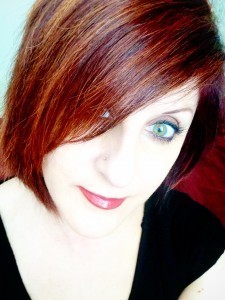 Rachel is a survivor herself. She has written the bestselling, award winning book Broken Pieces about her experience enduring and recovering from her childhood assault. As a Social Media Consultant she is widely recognized as an expert in the field of Social Media. The author of two other books, Mancode Exposed and A Walk in the Snark, she brings honesty and humor to every situation she encounters.
Rachel is a survivor herself. She has written the bestselling, award winning book Broken Pieces about her experience enduring and recovering from her childhood assault. As a Social Media Consultant she is widely recognized as an expert in the field of Social Media. The author of two other books, Mancode Exposed and A Walk in the Snark, she brings honesty and humor to every situation she encounters.
 I am a Marriage and Family Therapist with a specialty of working with adults and child trauma survivors. As a survivor of years of sexual assault in my childhood I have a unique position of being both in trauma recovery myself and providing trauma recovery services to my clients. I like to call it being familiar with “both sides of the desk”. I am also an author. My first book, Create Your Personal Sacred Text, is about spirituality and writing your truth. I have two works in progress, a novel entitled Above the Undercurrent and a non-fiction book about how to choose a therapist, that are scheduled for publication this year.
I am a Marriage and Family Therapist with a specialty of working with adults and child trauma survivors. As a survivor of years of sexual assault in my childhood I have a unique position of being both in trauma recovery myself and providing trauma recovery services to my clients. I like to call it being familiar with “both sides of the desk”. I am also an author. My first book, Create Your Personal Sacred Text, is about spirituality and writing your truth. I have two works in progress, a novel entitled Above the Undercurrent and a non-fiction book about how to choose a therapist, that are scheduled for publication this year.
Both of us understand what it’s like to endure and cope with childhood sexual assault. We want to help other survivors by providing a safe place to discuss their experience. Hopefully, in the process of doing that we can also help educate the loved ones of survivors who want to understand what it’s like to experience and recover from childhood sexual abuse.
Initially the chats will be a place of introduction and discussion. Eventually the chats may have a theme, such as learning about the permanent brain damage that survivors can develop, where we will bring in experts to help us understand the topic.
If you don’t know how to participate in a Twitter chat these pages will help:
Twitter Chat Made Easy is here
How to Participate in a Tweet Chat is here
It’s important to note that the Twitter chats are not therapeutic and are not intended to constitute or replace a therapeutic relationship you might need to have in real life. Nor are the chats meant to provide diagnosis and treatment for the effects of childhood sexual assault. If you need help locating a therapist here are several good resources:
Psychology Today has an excellent directory
Good Therapy also has a good directory
Please follow the @SexAbuseChat Twitter account for news about the chats. We will use the hastage #SexAbuseChat during our chats. If you have specific questions or concerns feel free to e-mail me at ResplendentbyDesign@Yahoo.com
If you’d like to connect with Bobbi you can find her on her blog, Twitter, or Amazon.
January 5, 2014
You’re An Adult. Write Like One.

FreeDigitalPhotos.net
‘People who are most afraid of their dreams convince themselves they don’t dream at all.’
~ The Winter of Our Discontent, John Steinbeck
I’ve written more than once about having confidence in yourself not only as a writer, but as a person — allowing yourself to tell your story. I had to reach that point myself in order to write Broken Pieces, and I’m still dealing with it as I write the next book in the Broken series, Broken Places.
Let’s deconstruct.
VALIDATION
Writers, especially newbie or young writers, are used to looking to others for validation: teachers, classmates, friends, family. I was no different. Like most writers, I started young, at age ten. I took many creative writing, poetry, and journalism classes in college. Then, once I graduated, I became a sales rep LOL (and hated it). For fifteen years.
I started writing seriously in 2008 (as in paid work). In our new online society, we receive validation in the form of comments on our blog, retweets, Facebook or Google+ shares, and book reviews once published. Sometimes the comments are positive, sometimes negative.
(I’ll cover reviews in a moment.)
The issue with looking to others for validation is that we aren’t trusting ourselves to know what’s good, and what to shred. We’re afraid to go too deep for fear that people won’t like what they see. In essence, we’re still acting like children searching for external approval.
I look back to college and think about how I studied: in my room, occasionally the library, by myself, tunes in, focused. I never did the study group thing — perhaps I should have — yet I still managed to graduate in four and a half years with a 3.4 GPA while working 32 hours/week. That lone introvert learned a valuable lesson — I learned how to learn. I learned how to trust myself. I learned when I was ready.
There’s a certain amount of detachment in that process — looking outside ourselves at our own behavior. Some would call that disassociation, an persistent friend I know quite well.
PERMISSION
Before we can get to the point of writing our stories and sharing in those various places, we have to first do a little work. Ask yourself what’s holding you back. Typically, it’s one of these:
What will my family think?
What will my friends/coworkers think?
What if people hate my work?
What if I’m no good?
Sound familiar? Every writer asks themselves these questions. The trick is not letting them mindfuck us. Sorry if that offends you (you’ll get over it), but I bought into all that for a long time, too. Some authors never get past it, or write under a pen name or fictionalize real-life experiences in order to protect the innocent (usually, I find it’s the guilty) but that’s another post. That’s a decision each of us has to make.
I know. I get it. I never addressed or even discussed my childhood sexual abuse (at the hands of a neighbor dad) publicly. The shame stayed with me for many years. I was nervous about ‘outing’ my family (none of whom were guilty of anything) — by outing, I mean labeling them in a public way as the family of that girl. The one who was molested.
Humor is my defense. In fact, it’s a form of disassociation. I even wrote two nonfiction humor books that have done quite well. But it wasn’t a perfect fit. Even I could tell that I wasn’t going there — I wasn’t blasting deep into the truth. And then I came upon this quote by author and professor Lorrie Moore in Elle Magazine:
The only really good piece of advice I have for my students is, ‘Write something you’d never show your mother or father.’ That sentence alone, just that, was very freeing to me. I could write my essays, my poetry, my stories, with the raw honesty I felt the work, and I, needed. Turns out I didn’t need anyone’s permission…but my own.
Further, Moore says:
The detachment of the artist is kind of creepy. It’s kind of rude, and yet really it’s where art comes from. It’s not the same as courage. It’s closer to bad manners than to courage. [...] if you’re going to be a writer, you basically have to say, ‘This is just who I am, and what I’m going to do.’ There’s a certain indefensibility about it.
And guess what? If you are a writer — and you need to own that you are — you don’t owe anyone an explanation about what you write. Would you tell an artist what to paint? A musician how to play a song? No, you wouldn’t dare, and neither would your family and friends.
You are an adult. Write like it.
REVIEWS
Reviews are a form of validation — positive and negative. Part of that whole mindfuck of, ‘What will people say? What if they hate it?’ stops many writers. Too bad we can’t predict the future, right? See, here’s the thing. You want people to read your work. That should be the goal of any writer.
If your goal is to look to total strangers (you neither know or respect) for validation, you are already setting yourself up for failure. If you don’t consider yourself a success unless you have awards bestowed upon you along with heaps of praise, you will be sorely disappointed. It CAN happen, but I know this to be true: you have to define your own success. Will you only consider yourself if a success if you get all five-star reviews? If you can pay your rent with your royalties? If you sell thousands of copies? Those are all THINGS.
All that’s great, and entirely doable. But if that’s ALL that defines you, if that’s the only way you will feel successful, you’re missing it. Change your paradigm: what if success means that you have connected with others in similar situations? What if success means ten people read your work and love it — and one of those knows someone who knows someone who can get it made into a movie script? What if you connect with a local community (i.e., sexual abuse survivors), and become an advocate?
Reviews are a way to learn how people interpret your work, and who is your demographic. Nothing more. People will love your books, people will hate your books. Prepare yourself for that.
A FINAL WORD
Not writing your story the way you really want to is an excuse — you’re feeding your insecurities. Acknowledge them. We all have them. Then tie them up with a string, put them in your desk drawer, and sit down to write.
They’ll still be there when you’re done.
Questions or comments? Please leave them below. Also, if you’re a print person, Broken Pieces is now available in print from Booktrope on Amazon, Barnes and Noble, and I’m not sure where else yet.
Related articles across the web
 Does Negativity Work As Motivation For Writers? Maybe.
Does Negativity Work As Motivation For Writers? Maybe. Questions for Aspiring Authors…
Questions for Aspiring Authors… Why writing should ALWAYS come from the Heart
Why writing should ALWAYS come from the Heart More Than Writing
More Than Writing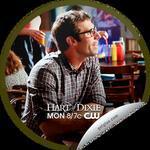 We writers are a weird bunch. I get that. But Really? REALLY?
We writers are a weird bunch. I get that. But Really? REALLY? How to Operate Your Writer
How to Operate Your Writer
December 28, 2013
Why Authors Should Avoid Discussing Politics and Religion
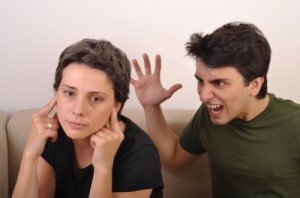
FreeDigitalPhotos.net
Many people disagree with my stance to avoid discussing politics and/or religion on social media (unless it’s a key part of your branding/book/blog).
And that’s cool. We all have to do what seems right to us, and we curate content that we find interesting. And shouldn’t social media be the one place we can really connect with like-minded folks? Didn’t Obama use Twitter and Facebook during his elections to really develop a diehard following? Don’t many of the various religious leaders and political parties use social media now?
Whatevs. Here is why I say to avoid those hot-button topics. Let’s deconstruct.*
*Examples are taken from real life as well as some clients, and in no way represent my personal ideology of worshipping fez-wearing purple aliens.
RELIGION/POLITICS
The most intense and inflammatory flame wars I’ve seen surround these two topics. The second you say something derogatory about say, our President, you out your personal beliefs as a (used for example only) diehard right-wing conservative Republican, or at least a disappointed Democrat.
Or maybe you could care less about politics but making a comment makes it seem as if you are extreme in some way even if you’re not. If your book is about politics, great. You’ve just connected with the demographic who will buy it — and alienated those who are offended by your personal politics or beliefs. I have a number of very conservative folks buy my books — and I’m certainly not their ‘normal’ demographic, am I? (A ‘left coast’ Jewish breadwinning female.)
My books have nothing to do with religion or politics — so I rarely if ever share anything political or religious on social media (or my websites). I believe we need to connect with readers at a basic human level — love, loss, relationships are my topics so that’s what I focus on. You as an author have to decide what is best for you, and your marketing and sales. I just caution you to be conscious that being a writer and having a public persona means this is your JOB. It’s never a good idea to get into discussions of ideology on social media. Avoid if you can.
FOCUS/BRANDING
If you focus on topics of interest that are somewhat related to you and your book, you will know exactly what to share on social media or as blog topics. The first activity you need to do (and I do this with clients, also), is figure out what five or so keywords (or key phrases) you are interested in, write about, are intrinsically drawn to. When we’re passionate about something, we are authentic — our interest is true. From there, you build your brand (or focus, if the B-word scares you).
I have one client who wrote a book about his experiences with the federal government. He has some very strong political opinions and is passionate about it also — and his book delves into politics. So for him, politics is a natural topic that cements his branding.
Another client writes YA/Paranormal, and is a conservative Christian. She found that by talking about her religious experiences or sharing those kinds of quotes was alienating her fan base — primarily because she’s not writing Christian Fiction. So…she stopped. She sticks to more YA and Paranormal type subjects and her following has grown exponentially. (She keeps her personal Facebook wall — where you friend people — strictly family and friends, using her page for book-related topics.)
TRIAL AND ERROR
Nothing we do in marketing is set in stone. If you pick your five words or phrases or topics and they don’t seem to resonate, change them. One client is a teacher, so he likes to connect with other teachers about educational-related topics. He also writes pretty racy erotica. The challenge, then, is: how to merge his daily interest in education with the edgier topics? We finally decided to have him use a pen name and keep that writing platform separate from his ‘real-life’ accounts. He’s a good, normal guy who writes racy stuff — however, he didn’t want anyone to think poorly of him with regard to teaching (and teachers have to be so careful these days anyway, particularly a male), so this has worked out beautifully.
In fact, just recently he decided to abandon the personal accounts (simply due to time constraints), so we shelved those accounts for now and rebranded his keywords strictly for writing and erotica.
This is just my opinion as both an author and social media consultant for hire. Above all, I believe in polite, respectful discourse.
Feel free to disagree, yell at me, or tell me I’m an idiot. I’ve heard it all. Bring it.
Did you know: Broken Pieces just won its seventh award? Top Honorable Mention with the London Book Festival! And Booktrope just released it in print on Amazon and Barnes and Noble. Read it and see why.
December 26, 2013
Kindle Raffle for Troops Winner
With your help we were able to raise $751 to send kindles to our troops!
Thank you to everyone who donated to make this possible.
The winner of our Kindle raffle is Mike Hartner!

As you can see Mike requested that if he won his Kindle be sent to eBooks for Troops as a donation. Thanks to Mike we’ll be sending out a new standard Kindle to our troops in addition to all the donations raised!
For those of you who want to donate ebooks we are still in the process of identifying an organization that deals directly with ebooks. Make sure you are signed up to receive future details here.
December 17, 2013
Indie Life: How Much Can Hybrid Authors Make? by guest @steenaholmes

Image courtesy of Gualberto107, FreeDigitalPhotos.net
There have been a few posts lately regarding how much Indie Authors should expect to make. Have you taken time to read them? You should – they are eye-opening and very insightful. The main theme you’ll hear is that this isn’t a get-rich-quick scheme and despite the large volume of books now available today for readers, authors are finding it difficult to make the income they thought they’d make.
2013 was a very different year for most authors compared to 2012. Those who made huge money in 2012 didn’t see it this past year and for various reasons. Readers are getting picky (and they should). Prices have dropped. It’s harder to get noticed. Algo’s on Amazon etc are always changing. It’s more expensive to advertise now. The list goes on and on.
The message you read everywhere lately is all the same…You must write more. You must get professional editing and a professional cover. You must expect to spend the money. And you should expect not to earn much. Pretty disheartening, right? But it doesn’t need to be.
I’ve had some authors tell me that they felt they were ‘late to the game’, that they took too long to jump into the indie pool and missed out on the great income they could have made. And maybe that’s true. But if you never jump in, you’ll never know, right?
Being an indie author is not easy. It’s not. Plain and simple. I’m continually thankful that I indie pubbed my first novella back in 2011 – I was able to make my mistakes early on when it wouldn’t hurt me as much. I also jumped in the poll early enough to be able to make a living in this and I’ve been smart about the decisions I’ve made (even when I’ve made mistakes) to ensure I continue to earn a living. I’m all about being honest and open … and I don’t want authors to think that they’ve lost out, that they were too late to the game or that it’s hopeless.
Let me share with you some honesty about my income:
2011 – I worked full-time and wrote in the evenings and while at work. I began to indie publish and it took me 6 months to make the $100 payout from Amazon.
2012 – despite constant rejection, I published Finding Emma and my life changed. I ended up making $185,000, signed with an agent, got a 3 book deal with Amazon and didn’t look back.
2013 – took a hard look at my brand, refocused and will make over $350,000 as a hybrid author (includes both indie and amazon imprint sales)
2104 – my goal is to earn more than $500,000
How was this possible?
First off – I’m not the only one doing this and there are more hybrid authors who make a lot more money than this – a lot more. Which means – it is possible. But how? What I’ve learned (through my own experience and by watching other indie authors) is that they use being a ‘hybrid’ author (as first coined by Bob Mayer and has a post about income here that you should read) to their advantage. They are either traditionally pubbed authors who turned Indie or they are Indie authors who were picked up by a big house. In the Digital World link below – you’ll see that those authors who are making the majority of income are hybrids.
But again – how, right? (I know you’re asking this). Well – not everyone can be Belle Andre (although we all want to be…or is that just me?). We all can’t get print-only deals. But we can use our trad published books to push sales for our indie books or vice versa. My indie sales hold their own thanks to my sales with the Amazon Imprint on my two books that I have through them (2 books out of 15 published).
Here’s what I did that I believe has helped to increase my income.
I refocused my brand. I redid my website and took a hard look at what I was writing. The stories I was putting out were all over the place – in different genres. While I love writing in a variety of genres, not all of my readers were following me into those stories – and that’s okay. For me it didn’t work to write multi-genre like I was. My readers are into women’s fiction and sweet romance – not erotic romance, thriller etc.
I took a look at where the income of my stories were coming from – and which books were not selling and it didn’t take me long to realize where my focus needed to be. And yes – others had told me this, my agent, close friends, but I’m the type who has to learn the hard way. And I learned.
I listened to my readers. Instead of focusing on the income and wanting ‘more and more and more’ – I took a hiatus from watching my numbers all the time and instead tuned into my readers. I asked them what they liked to read, what they wanted to read and I stopped seeing them as an income stream but rather as friends.
I created my ‘Steena’s secret society’ and interacted with readers on my Facebook page. I asked them questions, got them involved in my stories as I wrote them. Having a street team has been vital.
I focused on getting reviews over getting sales.
I wrote more in a series – books that my readers wanted – novellas that enhanced my novels with the Amazon imprint.
Do you see where I’m going with this? My focus changed. Yes – it helps to have Amazon behind me. Trust me, I love knowing that I earned out my advance earlier than expected and that I’m making money with them. But why shouldn’t I? I made money as an indie author and it stands to reason that I’ll continue that, doesn’t it? Being hybrid means grabbing hold of those options that are available to me and using them to my advantage – whether it’s going traditional, having print only deals, getting foreign rights, audio rights…doesn’t matter – it’s seeing beyond the box called ‘Indie Publishing’ and realizing there are no lines for me to cross – as long as I don’t see them.
My focus today is on my readers. That’s it. The books I write are ones from my heart that I know will touch my readers hearts. I’m no longer writing stories for the market or to make money. And it’s not because I’m already making the money, it’s because I realized earlier in 2012 that if I wanted to MAKE this money, I needed to stop focusing on the sales and instead look to my readers. The two go hand in hand…you can’t make money without finding readers and you won’t find readers unless you have sales to make the money…so instead of focusing on those sales, why not focus on your readers and you’ll see the sales. Makes sense to me.
Can you make money as an author? YES! Absolutely you can. Will you earn that money right away? Probably not. It might take you a few years. But do you have a goal of what you want to be making? Do you have a plan in place? Are you surrounding yourselves with other indie and hybrid authors who are moving forward instead of being stuck in the present (let alone always looking to the past)? You should be. There’s one thing about the Indie Community that I love – and it’s the fact sharing. We’re there for one another, sharing tidbits that worked for us or didn’t work. When someone’s sales are down, we rally behind them and help figure out a way to find more readers. We discuss platforms and so much more. If you are doing all this and still not seeing the money – keep walking forward – you’ll get there. If your dream is to quite your job and write full-time, then keep pursuing that dream.
Bottom line…don’t give up. You can do it. And yes, you can earn money, make a living, support your family off your passion. It just might take time. As author Dara Lee Snow is always telling me – if I made all my goals today, what else would I have left to attain? Keep challenging yourself and don’t give up.
I’ve shared my story in hopes to help you not lose heart. I hope it helped. If I can do it – so can you. And yes, I honestly believe that – because remember – I know what it feels like to watch your sales (and returns) and wonder how long it will take before you get your first cheque from Amazon (or any other retailer).
Here are some of those articles I mentioned above. Check them out.
Rachel Thompson – How Much Can Indie Authors Realistically Make
Molly Greene – When Sales are Slow
Digital Book World – Self Publishing Debate – Writing Income
Interested in the Indie Life? Sign up for their newsletter.
Originally published on Steena’s site. Used with her permission.


